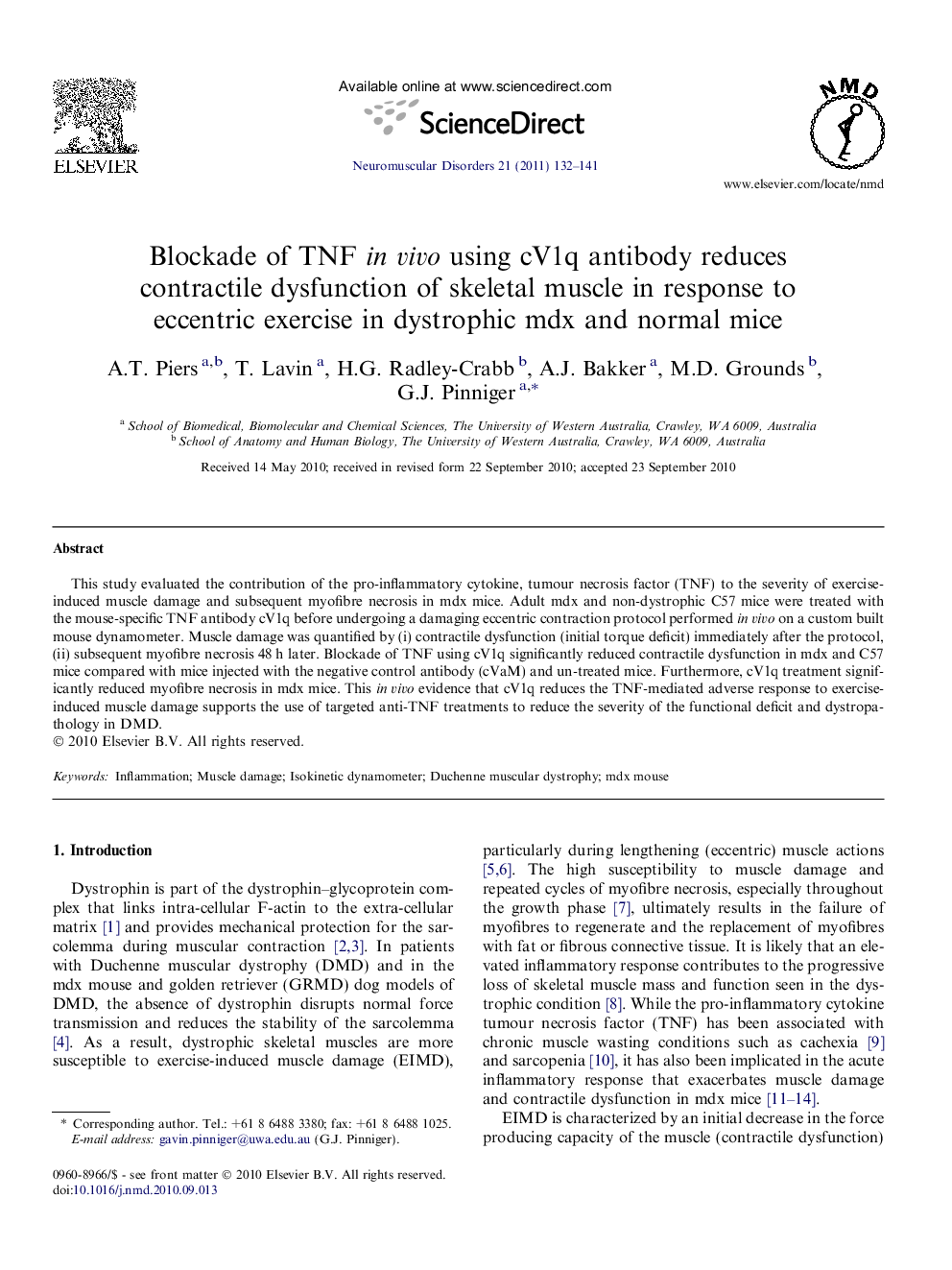| Article ID | Journal | Published Year | Pages | File Type |
|---|---|---|---|---|
| 3079833 | Neuromuscular Disorders | 2011 | 10 Pages |
Abstract
This study evaluated the contribution of the pro-inflammatory cytokine, tumour necrosis factor (TNF) to the severity of exercise-induced muscle damage and subsequent myofibre necrosis in mdx mice. Adult mdx and non-dystrophic C57 mice were treated with the mouse-specific TNF antibody cV1q before undergoing a damaging eccentric contraction protocol performed in vivo on a custom built mouse dynamometer. Muscle damage was quantified by (i) contractile dysfunction (initial torque deficit) immediately after the protocol, (ii) subsequent myofibre necrosis 48Â h later. Blockade of TNF using cV1q significantly reduced contractile dysfunction in mdx and C57 mice compared with mice injected with the negative control antibody (cVaM) and un-treated mice. Furthermore, cV1q treatment significantly reduced myofibre necrosis in mdx mice. This in vivo evidence that cV1q reduces the TNF-mediated adverse response to exercise-induced muscle damage supports the use of targeted anti-TNF treatments to reduce the severity of the functional deficit and dystropathology in DMD.
Related Topics
Life Sciences
Neuroscience
Developmental Neuroscience
Authors
A.T. Piers, T. Lavin, H.G. Radley-Crabb, A.J. Bakker, M.D. Grounds, G.J. Pinniger,
